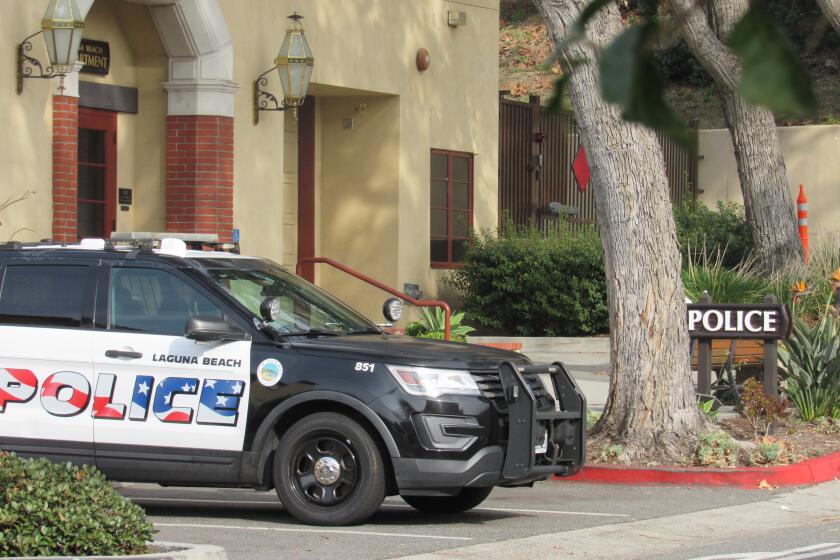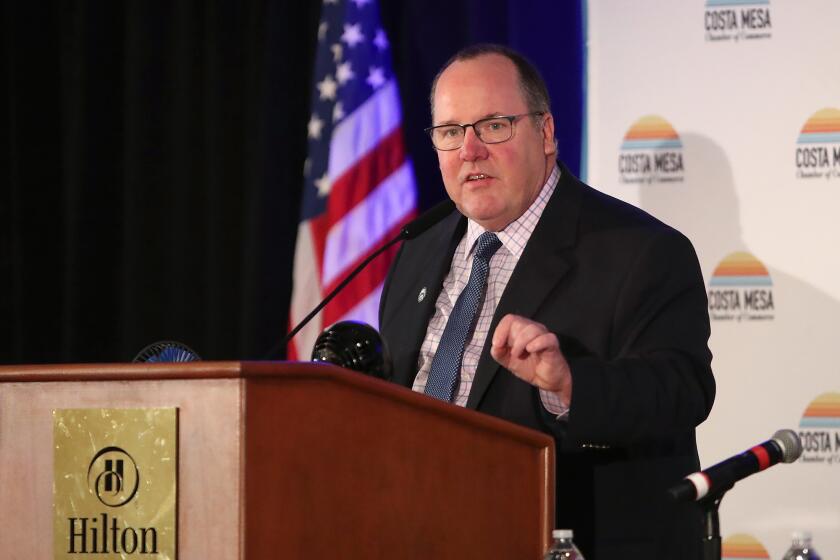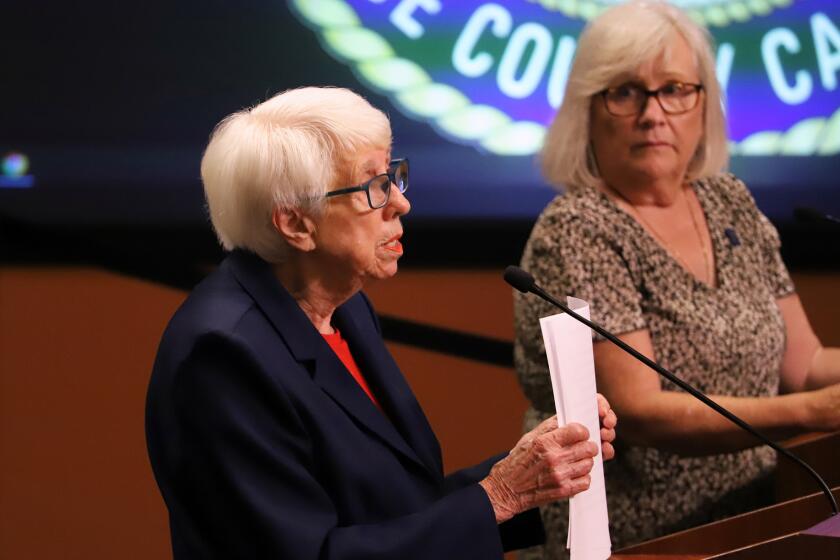St. James leaders forge ahead with reconciliation
Local Episcopal Church leaders acknowledged the continual, bruising conflict that has surrounded the St. James the Great church in Newport Beach for the last two and a half years of off-and-on sale attempts, extending a promise to transparently work together with the ascension of a new bishop and the impending reopening of the long-shuttered sanctuary.
In a joint statement released Thursday titled “Making All Things New,” John Taylor, the successor to retiring Episcopal Diocese of Los Angeles Bishop J. Jon Bruno, Rachel Nyback, president of the diocesan Standing Committee governing body, and Rev. Canon Cindy Evans Voorhees, the priest who has continued to lead the St. James the Great flock, acknowledged the pain that has come from the sales attempts and related closure.
“The church’s sudden closing hurt the people of St. James,” they wrote. “Their leaders countenanced hurtful statements and tactics. This cycle of hurt strained relationships in the diocese. We will end the cycle by sharing our narratives openly and honestly, using reconciliation in relationship to rediscover our unity and purpose as a diocesan family in Christ.”
In October, the diocese announced that the second planned sale of the church property had been canceled and that the building, locked since a separate sale attempt in 2015, would be reopened to worshippers. This week’s statement affirmed that the diocese had no plans to sell the church, although it did not give an opening date.
The church may reopen soon for weekly services with rotating guest clergy, including Taylor and Voorhees. A portion of the facility will function as a broader Redeemer Center for Diocesan Ministries.
When the prior St. James congregation resumes its “mission status” organizational rank, it will regain use of the church and Voorhees as its vicar, according to the joint statement.
In another statement Thursday, Taylor said few advocates on either side will likely feel completely vindicated.
“Winners and losers. Polarization and accusations of duplicity and betrayal. Inflexible positions and disrupted friendships,” he said. “Not the church at its best — but inevitable consequences whenever controversy erupts, the fog of conflict descends, and colleagues in leadership and ministry take up sides instead of tending relationships. In the midst of conflict, we’re often at our worst when we think or know we’re right.”
Bruno told the congregation in May 2015 that he had committed to selling the site at 3209 Via Lido for $15 million to would-be luxury townhouse developer Legacy Partners. He locked the church doors and kept them closed even after the transaction fell through when Legacy’s investment partner dropped out.
This year, he entered negotiations with Newport Beach developers Burnham Ward for an undisclosed sum. The local company said it wanted to maintain the site as a place of worship.
Bruno – who is stepping down this month as he approaches the church’s mandatory retirement age – has faced a string of ecclesiastical disciplinary orders related to his attempts to sell the St. James property.
In March, a church panel conducted a three-day hearing similar to a trial in which Bruno answered allegations of misconduct related to his 2015 sale try. In August, the hearing panel found that he had engaged in misconduct and recommended a three-year suspension from ministry for Bruno, plus halting his renewed efforts to sell the St. James site. It also recommended unlocking the building so the congregation could resume worship there.
However, the diocese later said it planned to proceed with selling the property to Burnham Ward, citing a legal obligation created by Bruno.
Voorhees and other St. James congregation leaders offered to buy the property and run it independently, a proposal the diocese considered but rejected, the joint statement said.
Moving forward, the statement added, congregants will stop using communications strategists and social media to advocate in connection with its relationship to the diocese.
On the secular side, Save St. James the Great, an advocacy organization formed by church members after the 2015 sale effort, has dropped its appeal of an Orange County Superior Court ruling that Bruno, as a one-man corporation known as Corporation Sole, had the legal right to sell the church.
“As a part of the … dismissal they have requested that I agree to not pursue legal actions against them and their legal counsel for filing a malicious prosecution lawsuit against Corporation Sole in 2015,” Bruno wrote in a statement released Wednesday evening. “Although there is sound basis on which to pursue further legal action, so as to fully resolve the conflict, I have agreed to those terms.”
Similarly, an Orange County judge ruled in July that Bruno had legal control over the church property, nullifying a claim by the land’s donor that it can only be used as a church.
The Griffith Co., which donated the land to the diocese in 1945, raised a deed restriction issue after the bishop’s first attempted sale.
Twitter: @Daily_PilotHD
All the latest on Orange County from Orange County.
Get our free TimesOC newsletter.
You may occasionally receive promotional content from the Daily Pilot.




